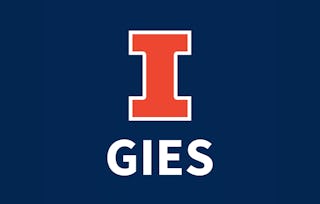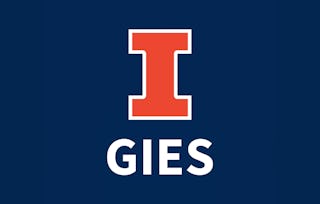This course reviews the dramatic changes that Globalization has brought to businesses. Markets are growing culturally diverse and companies face the challenge of managing an increasing culturally diverse workforce. It is then increasingly important for managers to incorporate cultural variables into their decision making models. This course enables students to understand how globalization changes consumers and employees at a psychological level. The focus is on understanding that culture exists in people’s minds, as values, beliefs, and ideals, as well as around us in objects, brands, and institutions. The course introduces popular cultural frameworks used by human resource managers and marketing managers. These cultural frameworks will allow students to better understand cross-cultural consumer behavior and suggest ways to more effectively manage organizations across cultural boundaries.

Global Marketing: Cultural Frameworks
6 days left! Gain next-level skills with Coursera Plus for $199 (regularly $399). Save now.

Global Marketing: Cultural Frameworks
This course is part of Global Challenges in Business Specialization


Instructors: Carlos J. Torelli
3,294 already enrolled
Included with
(14 reviews)
What you'll learn
Understand what culture is, how culture manifests itself in individuals and the environment, and how it is studied.
Predict consumer and employee behavior in different cultural markets and dynamic cultural settings.
Suggest ways to more effectively manage organizations across cultural boundaries.
Understand similarities and differences between national and organizational culture.
Skills you'll gain
Details to know

Add to your LinkedIn profile
25 assignments
See how employees at top companies are mastering in-demand skills

Build your subject-matter expertise
- Learn new concepts from industry experts
- Gain a foundational understanding of a subject or tool
- Develop job-relevant skills with hands-on projects
- Earn a shareable career certificate

There are 5 modules in this course
You will become familiar with the course, your classmates, and our learning environment. The orientation will also help you obtain the technical skills required for the course.
What's included
4 videos4 readings1 discussion prompt
A proliferation of global brands brings diverse cultures to a consumer population that is also growing culturally diverse. Companies are managing a workforce that is also increasingly culturally diverse. This module discusses what globalization is, and how it is connected to five forces: growing multiculturalism, cultural mixing, global competition, information flows and co-creation, and global interdependencies. This module will also analyze what culture is, why cultures emerge, the environmental influences that shape culture, where culture exists, and how it manifests itself. Students will learn that culture exist in our heads as values and beliefs, but also outside our heads in things that surround us, in material objects, and in social institutions. In particular, products, brands, and leadership styles can be tangible representations of culture.
What's included
9 videos3 readings8 assignments
Culture dimensions are to countries what personality dimensions are to people. We can use culture dimensions to describe the culture of a country the same way we can use personality dimensions, such as extraversion or narcissism, to describe a person. This module introduces the cultural framework developed by Geert Hofstede, a pioneer cross-cultural management researcher from the Netherlands. The framework consists of six cultural dimensions that describe values, norms, attitudes, and behaviors around six themes. These dimensions can help explain and predict the consumer behavior of diverse cultural groups.
What's included
7 videos3 readings6 assignments
This module introduces the cultural frameworks developed by Triandis and colleagues. Harry Triandis was a Professor of Psychology here at the University of Illinois at Urbana-Champaign. He is considered the most renowned academic scholar in cross-cultural psychology, and the frameworks inspired by his work illustrate the important role of culture in three crucial domains of human psychology: (1) The Self, or how individuals perceive themselves as a unit, perceive and interpret the world around them, and set and pursue goals; (2) Society, or how the self fits in with others and manages relationships. How other people are perceived and prioritized in relation to one other; and (3) Social Coordination: The normative processes, social structures, and material culture used to create order, coordinate behavior, and reinforce shared norms.
What's included
6 videos4 readings5 assignments1 peer review
The framework in the past two modules explain culture based on observed patterns of beliefs, values, and behaviors that are shared by members of different societies. This approach to understanding culture is referred to as the descriptive approach to culture. Although cultural prescriptions would determine, overall, how people from a culture differ in judgments and behaviors from those of a different culture, a descriptive approach to culture fails to account for variations of behaviors within the culture. In other words, culture is not deterministic in the sense that people behave as cultural actors all the time. To address this limitation of the descriptive approach to culture for predicting human behavior, researchers introduced the dynamic approach to culture, also known as the dynamic constructivist approach to culture. This module introduces the dynamic approach to culture to address the limitations of the descriptive approach. The module introduces the basic tenets of the dynamic approach to culture and discusses the contexts in which culture is more likely to be salient or “active” to drive people’s judgments and behaviors. The module introduces biculturalism, i.e. ways of acquiring two cultural knowledge networks and identities. The module closes discussing issues of international assignments and culture shock.
What's included
7 videos3 readings6 assignments
Earn a career certificate
Add this credential to your LinkedIn profile, resume, or CV. Share it on social media and in your performance review.
Build toward a degree
This course is part of the following degree program(s) offered by University of Illinois Urbana-Champaign. If you are admitted and enroll, your completed coursework may count toward your degree learning and your progress can transfer with you.¹
Instructors


Offered by
Explore more from Leadership and Management
 Status: Free Trial
Status: Free TrialUniversity of Colorado Boulder
 Status: Free Trial
Status: Free TrialUniversity of Illinois Urbana-Champaign

University of Illinois Urbana-Champaign
 Status: Free Trial
Status: Free TrialUniversity of Illinois Urbana-Champaign
Why people choose Coursera for their career

Felipe M.

Jennifer J.

Larry W.

Chaitanya A.
Frequently asked questions
You will be eligible for a full refund until 2 weeks after your payment date. You cannot receive a refund once you’ve earned a Course Certificate, even if you complete the course within the 2-week refund period. View our full refund policy.
Yes! Coursera provides financial aid to learners who would like to complete a course but cannot afford the course fee. To apply for aid, select "Learn more and apply" in the Financial Aid section below the "Enroll" button. You'll be prompted to complete a simple application; no other paperwork is required.
To access the course materials, assignments and to earn a Certificate, you will need to purchase the Certificate experience when you enroll in a course. You can try a Free Trial instead, or apply for Financial Aid. The course may offer 'Full Course, No Certificate' instead. This option lets you see all course materials, submit required assessments, and get a final grade. This also means that you will not be able to purchase a Certificate experience.
More questions
Financial aid available,





